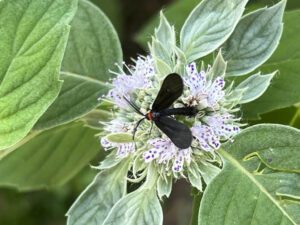Conservation
The Augusta Bird Club’s Conservation Committee is dedicated to providing members, and non-members alike, the opportunity to get involved in a variety of hands-on projects and programs that focus on improving habitat, citizen science and conserving our natural resources. By partnering with other community organizations, agencies and local businesses, we can make a difference for the conservation of birds right in own backyard! Each season brings opportunities to get involved, such as participating in a few of our annual inventory programs, like the Fall Hawk Watch at Rockfish Gap (check out the Hawk Watch page for more info), our two annual Christmas Bird Counts in December/January, or the Spring Big Day Count in April. Through our Conservation Committee Chairperson, Lynne Parks, we’re also excited about her new native garden campaign to create more local habitat. To thrive, birds need native foods such as seeds, nuts, fruits, berries, nectar, and insects. Baby birds primarily eat caterpillars so host plants are essential. One such garden that’s already underway is in Montgomery Hall Park, in Staunton, where we’re partnering with the Augusta and Beverley Garden Clubs. This garden is becoming a seedbank for other projects.




This native garden is an opportunity to educate youth through Parks and Recreation programs. If we can engage and enrich youth, we can create a brighter future for birds. That’s our hope!
Our conservation efforts also include volunteering/partnering with our local schools, like the Nature Trail at Bessie Weller Elementary School in Staunton. Jim Hill is refurbishing bluebird boxes, and our seeds will help restore habitat. We’ll be leading bird walks, helping install a bird investigation station along the trail, and creating a feeding station so students can watch out of windows we’ll make bird-safe.



In addition, we’ve implemented projects that focus on removing invasive species, we have a new Chimney Swift conservation campaign, and we’ll be helping the DCR with point count surveys on lands undergoing restoration.
There are many ways you can help birds too. Plant your own native gardens and avoid using pesticides, make problem windows safe, keep cats indoors, purchase bird-friendly coffee, use less plastic, and buy a Migratory Bird Stamp, which helps to protect critical nesting habitat and funds many habitat restoration projects! We hope you can join us in some, or all, of these projects, as we try to make a difference for the conservation of birds right in our own communities! If you’re interested in learning more about our upcoming projects, or would like to help out with our projects, please drop an email to our Conservation Committee Chairperson Lynne Parks (v.lynneparks_AT_gmail.com).

